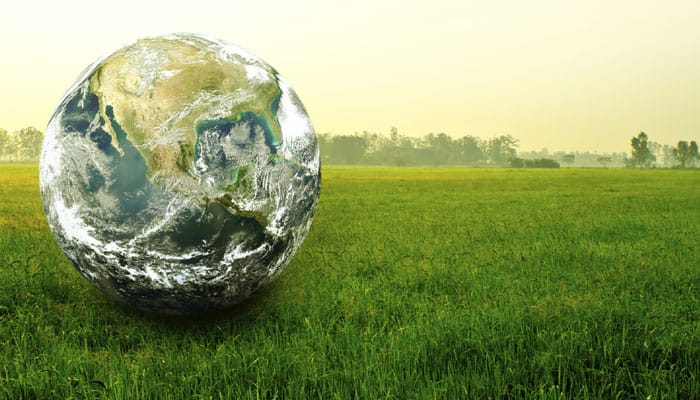Salome Phelamei
As always, over 100 countries around the world are celebrating World Environment Day (WED) on Friday, June 5, raising awareness about the importance of protecting planet Earth and mother nature.
On this day, the United Nations Environment Programme (UNEP) calls on nations, encouraging them to do something positive for the environment.
This year, the WED is being hosted by Italy. Highlights of the programme include collaboration with the Milan Expo, where the WED will support and complement the Expo theme of ‘Feeding the Planet - Energy for Life’.
The theme for this year’s WED is “Seven Billion Dreams. One Planet. Consume with Care". It tells us how the well-being of humanity, the environment, and the functioning of the economy, ultimately depend upon the responsible management of the planet’s natural resources.
Evidence shows that people are consuming far more natural resources than what the planet can provide.
To make matters worse, many of the nature’s ecosystems are nearing critical tipping points of depletion or irreversible change as a result of high population growth and economic development.
With human population projected to reach 9.6 billion by 2050, and if current consumption and production patterns remain the same, scientists have warned that mankind will need three planets to sustain current ways of living and consumption.
But, it is up to us to ensure a healthy future through careful and wise use of natural resource; any delay or failing to do so can cost us dearly. Living well within the planetary boundaries is the urgent need of the hour
In fact, many impacts of global warming have already been witnessed, including the glacier retreat, changes in weather and agricultural productivity. And as our climate changes, the risk of injury, illness and death from the resulting heatwaves, storms and floods escalates.
All of us can make a difference in protecting our planet no matter how small our action is. It is all about caring for the planet and its natural resources. Simple steps like walking or carpooling instead of driving can help curb climate change by reducing carbon footprint, which is the main greenhouse gas contributing to the warming atmosphere.
Rising temperatures and heatwaves
At present, India is battling record-breaking heat, the worst in decades, claiming over 2,000 lives so far, killing mostly the elderly and the poor. The southern states of Andhra Pradesh and Telangana have recorded the highest loss of life. This can be seen as a direct effect of global warming on humanity.
Scientists are of the view that extreme heat events will become more common as the global temperature rises due to climate change. Research shows that heatwaves are currently five times more frequent than they would be in the absence of human-caused warming, and the chance of any particular heatwave being caused by climate change is 80%, reports the Guardian.
The scenario is even deadlier as heatwaves are forecast to be 12 times more likely by 2040 unless efforts are made to cut carbon emissions.
Food and water security
There’s no doubt about rising global temperatures being directly impacting food and water security. Thus, the rising temperatures have put workers’ lives at risk from working under the scorching heat as they don’t have another source of income to survive. The effects of crop failure and the high population growth altogether will result in serious global consequences in terms of food security.
Almost one billion people go undernourished and another billion hungry. While substantial environmental impacts from food occur in the production phase, about 1.3 billion tonnes of food is wasted every year. This subsequently affects the environment through food-related energy consumption and waste generation. And increased consumption means food security is adversely affected.
Reports also suggest that more than one billion people still do not have access to clean drinking water. Yet, humans are polluting water faster than nature can recycle and purify water in rivers and lakes. Water, which is a free gift from nature, needs to be conserved from excessive usage.
Water scarcity has now become a major problem in many parts of the world, including India. By 2025, two-thirds of the world’s population may face water shortages and ecosystems will suffer even more.
While less than 3% of the world’s water is fresh meaning drinkable, two-thirds of that is frozen in Antarctica, Arctic region and as glaciers. Humanity must therefore aggressively work towards reducing global water stress and develop ways to save it otherwise the consequences we may face will be irreversible.
Energy crisis
Despite energy efficiency gains made from technological advances, energy use, particularly, in OECD countries continues to upsurge, which will cause constraint in near future.
Globally, transport and service sectors are the largest energy consumer, followed by commercial and residential usage.
It has been projected that the energy use in OECD countries will continue to grow another 35% by 2020. However, we can still help save the energy by shifting our consumption patterns without compromising quality of life. Opting for a public transport whenever possible would significantly help save energy while cutting down on fossil fuel burning.
At the domestic level, switching light bulbs to fluorescent, turning the temperature down inside the room whenever possible or using energy efficient appliances can help conserve energy and reduce carbon emissions.
Henceforth, the idea of celebrating World Environment Day is to remind us on how important it is for us to save the planet and its natural resources. It is all about working towards better choices through our daily activities such as making minimum use of water, air and energy so that we create a greener and healthier world for ourselves and for future generations.







